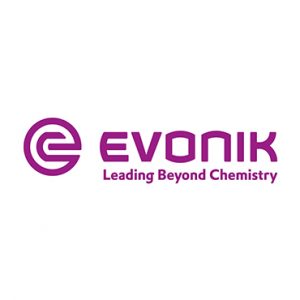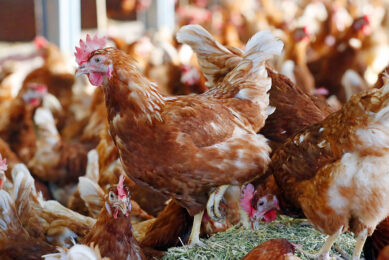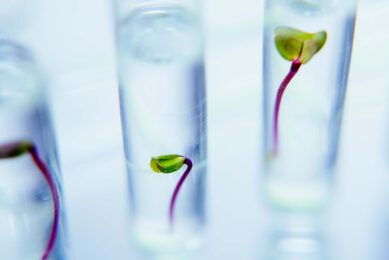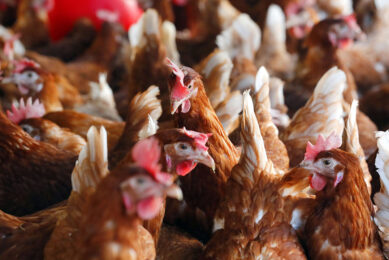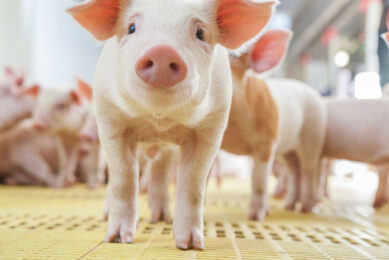The key challenges in broiler gut health: How can we help?
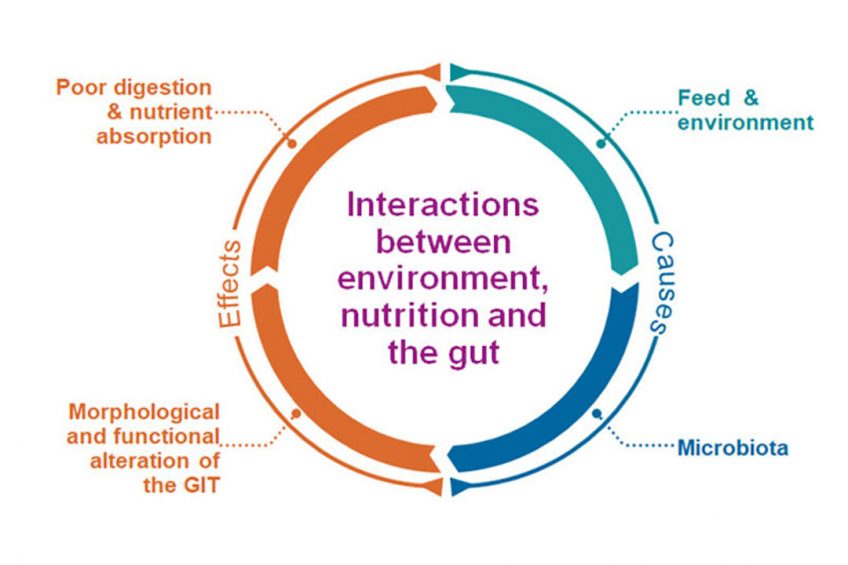
In modern broiler production, producers face a multifactorial problem including challenging environmental conditions, feed quality and intestinal health. Evonik investigated the causes of these challenges to find the answer.
The interaction between these elements is key for the development of the morphology and the function of the gastrointestinal tract (GIT). This is essential for nutrient digestibility and absorption, but it is also the first line of defence against pathogens, viruses, and parasites.
When building new gut health system solutions, we investigated the causes of these challenges and worked on finding an answer. These included the main topics of heat stress, feed nutritional values and quality, parasites, antibiotic growth promoter (AGP) replacements, and the main pathogenic bacteria.
All these issues have a direct impact on the GIT, especially when one, or many of them, leads to an imbalance in the system. This can result in a negative alteration of the microbiota and gut morphology and by consequence cause poor animal performance, lower flock uniformity, higher mortality and poor litter and air quality. If not treated and solved, they can create a vicious circle.
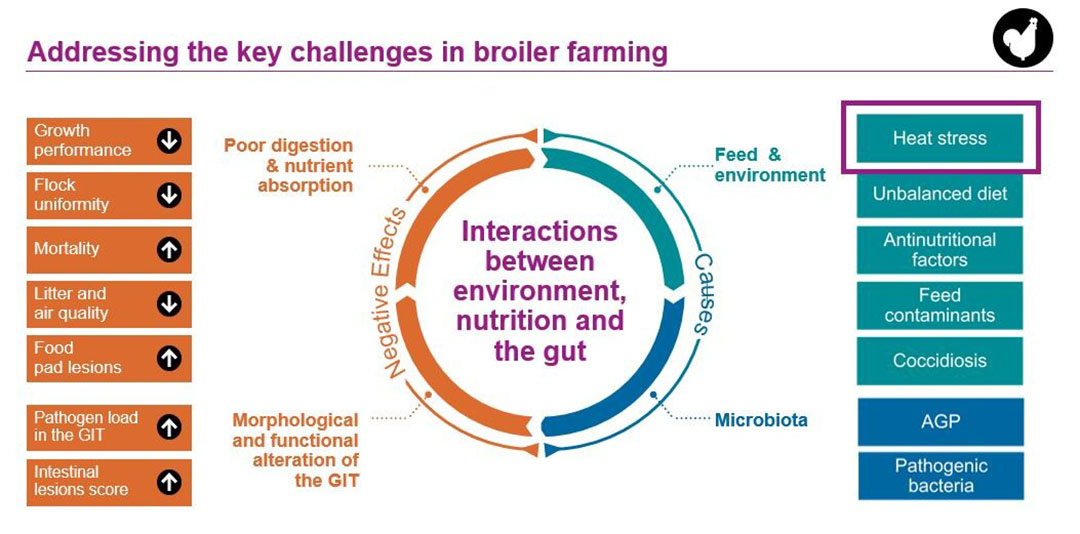
Heat stress
Managing heat stress requires a holistic approach that includes improvement and management of housing systems, lighting programmes, water system and water quality. Nutritional strategies can also be applied to reduce the impact and achieve the performance target.
Using extra minerals and vitamins in the feed or water lines will increase electrolyte balance. Feed formulations can be adapted by decreasing the protein level, balancing with synthetic amino acids (AA), increasing energy density with oil, and using feed additives, including phytobiotics, enzymes, prebiotics, and probiotics.
Feed additives as part of the solution
Once animals are under heat stress, they will deploy physiological strategies and adaptations to reduce the impact. For example, they will avoid producing more heat by decreasing feed intake and decreasing protein digestion and absorption.
One study shows that using the Bacillus amyloliquefaciens CECT 5940 (Ecobiol) increased the feed intake and nitrogen retention to the same level as the control under normal conditions. However, the animals also inactivated ‘nonessential’ functions like the immune system, which will lead to a lower resistance to diseases. The probiotic counteracted the negative impact and brought the level of the glycoprotein CD4 and the antibody IgG to the same level as the unchallenged group.
Feed quality
Firstly, feed quality varies. If the feed composition has excess protein, for example, this can lead to a shift towards negative metabolite and cause inflammation and outgrowth of pathogenic bacteria, and a decrease in performance. Secondly, there is the presence of anti-nutritional factors (ANF) to consider. In raw soybean for example, there are various ANF such as protease inhibitors, lectins, and saponins. When treated properly most of these are deactivated, but when you over-process soy it generates heat damage which leads to protein denaturation and a decrease of AA digestibility. Lastly, there are contaminants like biogenic amines that are the product of the degradation of animal protein by specific bacteria.
So how can we help to solve some of these issues?
Firstly, it is important to have a well-balanced diet that covers the nutritional recommendation for broiler optimal growth, this can be assessed using AminoChick, for example. A crude protein diet, balancing the AA profile with synthetic ones, allows the reduction of nitrogen excretion, improving litter quality while maintaining performance. A better evaluation of the nutritional values for ingredients can be achieved using AminoNIR prediction or the AminoDat database, with more than 500 feed ingredients.
The assessment of animal nutrition feed can be made using NIR-based technology, such as AMINONIR Red. The resulting report contains various quality parameters like trypsin inhibitor activity, processing condition indicator, protein dispersibility and reactive lysine. 11 main biogenic amines can be quantified in only one high performance liquid chromatography (HPLC) run, to help better evaluate the quality of ingredients and avoid performance losses.
Antibiotic growth promoter alternatives
In the past, AGPs were widely used to improve feed efficiency and animal performance under normal conditions and were valuable under pathogen challenge. However, the side effect of microbiota alteration and the development of anti-microbial resistance is a concern for public health. Therefore, the use of antibiotics as growth promotors has been banned in many countries around the globe.
Research validates some alternatives for the AGP, including probiotics. Evonik tested probiotic bacillus subtilis DSM 32315 (GutCare) vs. zinc bacitracin under necrotic enteritis challenge. The results showed that we can improve performance compared to the control group and reach the same level as when using AGPs.
Under Clostridium perfringens challenge, studies show a decrease of Clostridiales and an increase of bacteroidales. GutCare stabilised the microbiota composition and results showed we have comparable microbiota composition as the non-challenge group. Therefore, using a probiotic improves performance and stabilises the microbiota under pathogen challenge.
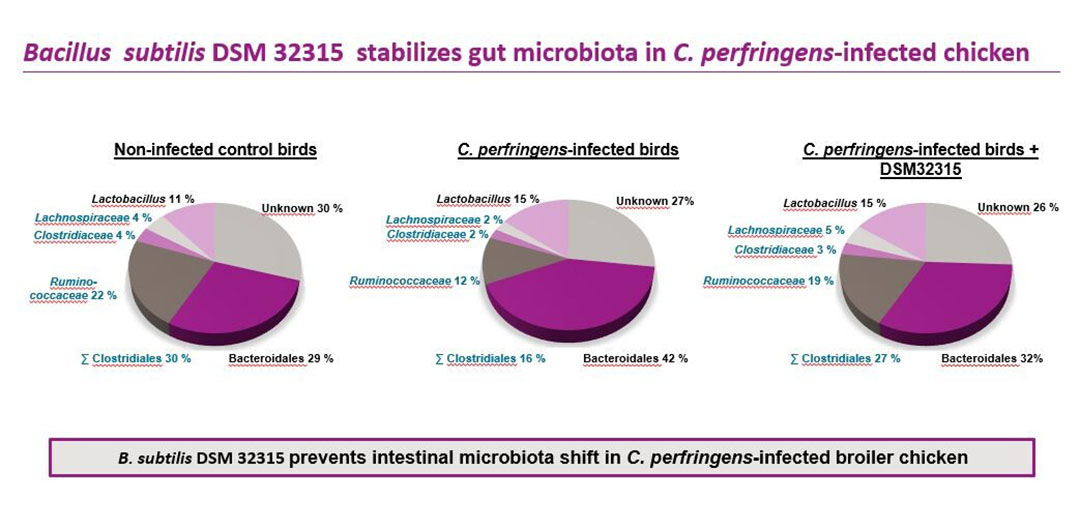
Probiotics for water application and field feeding trial
There are times when a producer cannot change the feed composition or control quality as they are dependent on external suppliers. So, what should be done when we see the first signs of weakness or during stress period, or uncontrolled events?
A solution would be to use an additive in the water, for example, vitamins, minerals, organic acid, and probiotics. Applying probiotics to water can support the establishment of the intestinal microbiota and stabilise it during a stress period like feed transition.
Evonik’s new effervescent tablet (Ecobiol Fizz) is compatible with various feed and water additives that will allow flexible application at the farm level. A validation trial has been conducted at a commercial farm in the UK. The results show the use of the tablet in the water line during feed transition periods for three days allowed a ROI of € 5.4 over the control group. This economic success is mainly due to lower mortality, hock burn and pododermatitis, but also fewer rejections at the slaughterhouse.
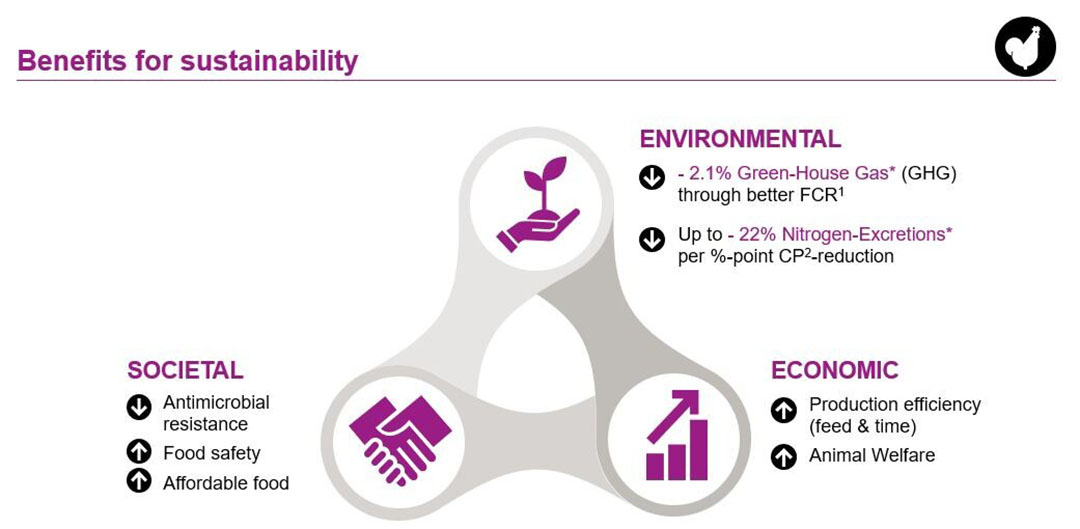
Benefits for sustainability
Combining farm management with products, services and nutritional system solutions will allow us to balance the intestinal eco-system and ensure animal health and welfare, end-product quality and save costs. The concept has also a positive environmental impact by reducing green-house gas emission and nitrogen exertion while ensuring economic success and social well-being and safety.


